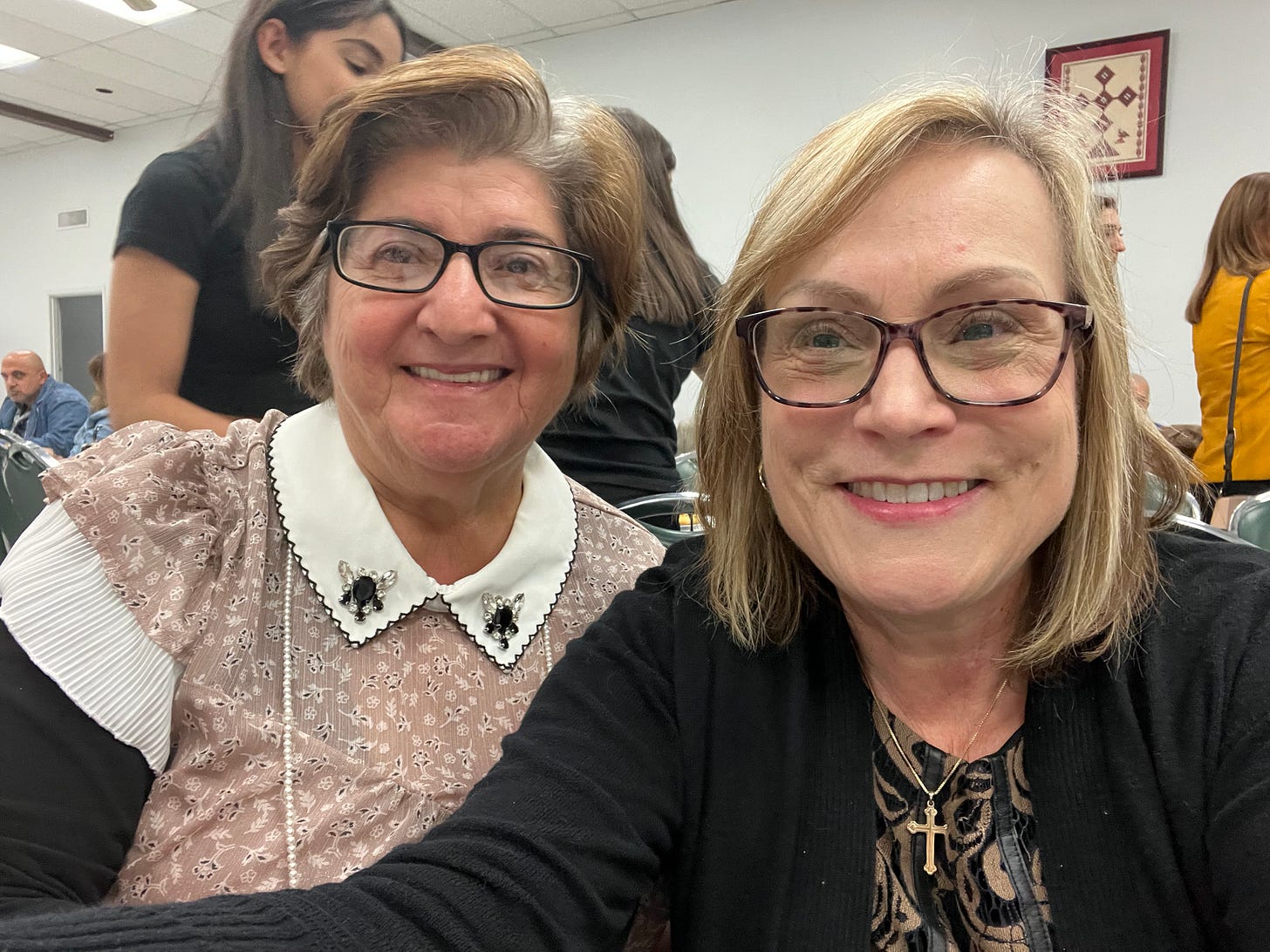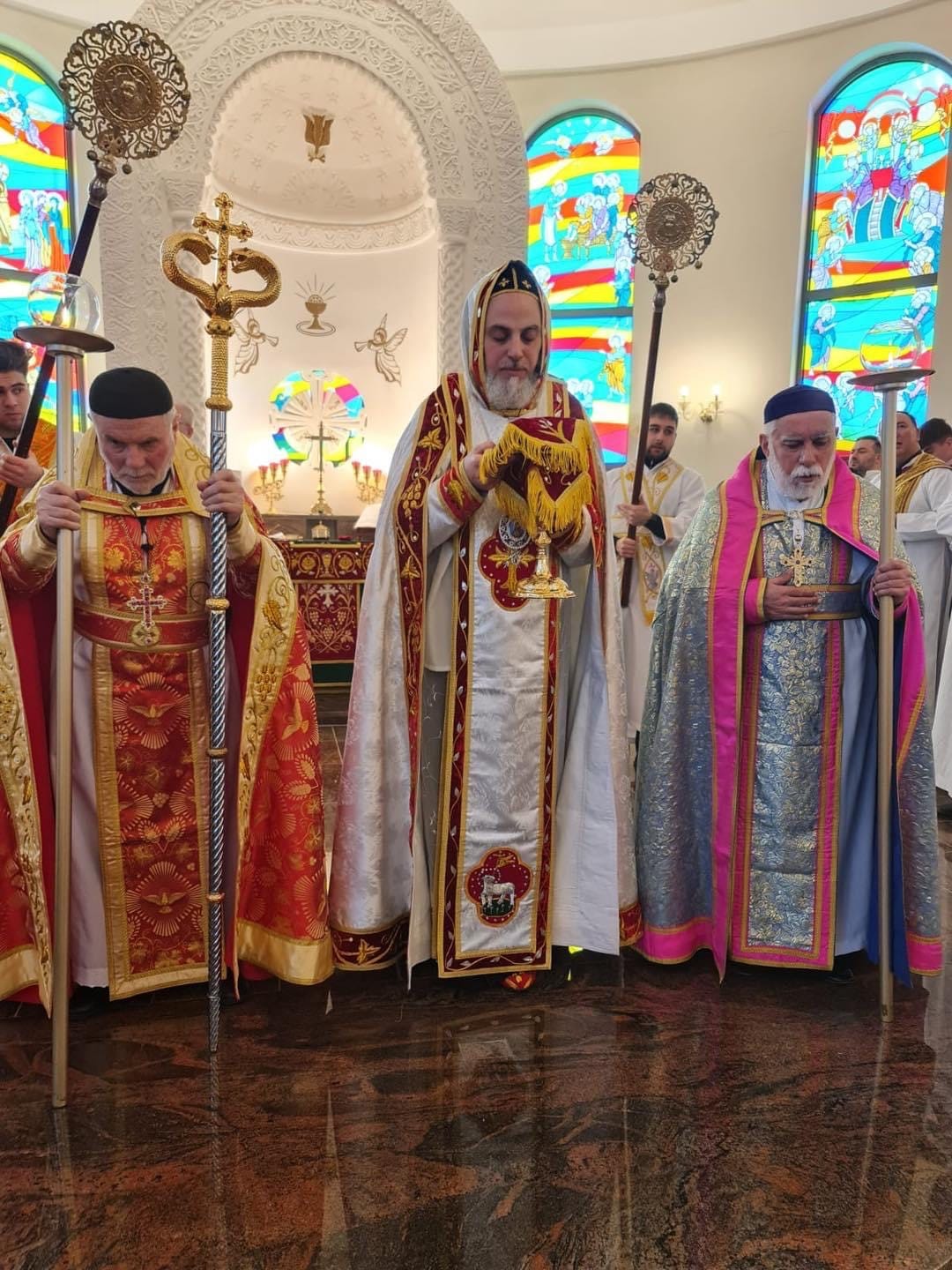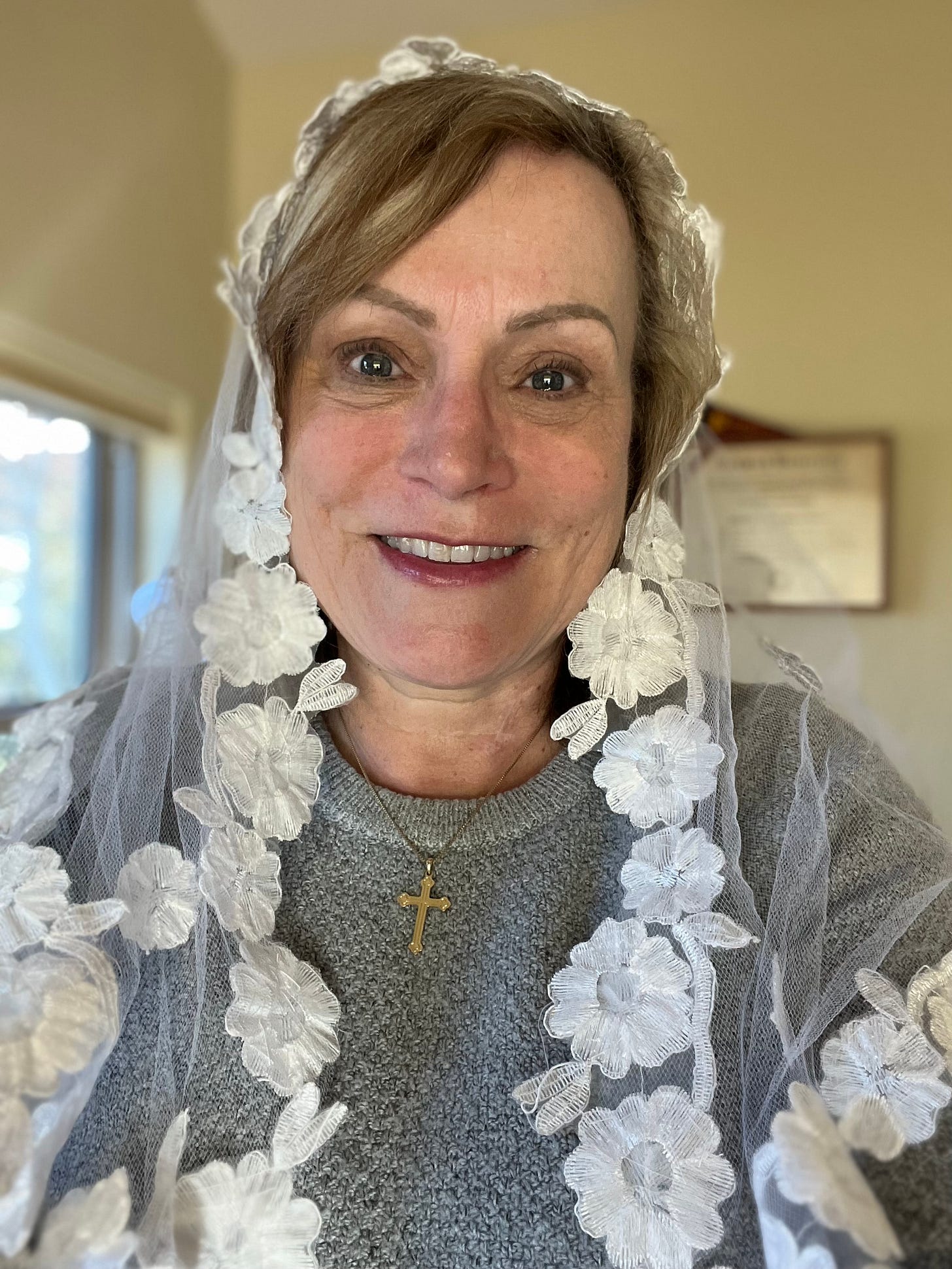Further Thoughts on Moving to Orthodoxy
The good, the not so good, the amazing!
I trust you have read part one of my move to Orthodoxy. If not, here is your chance:
After I published this summary of how I came to be a Syriac Orthodox believer after 45 years as an Evangelical (and four years of seminary education, resulting in two Master’s degrees, a Master of Arts in Biblical Studies and a Master of Divinity in Missional Studies), I realized there were some other answers I should give. So here goes, without careful prioritization, my current list of thoughts I have tossed around. Also, note that this is a personal reflection of how I came to see Orthodoxy as true and right.
Theological differences to my former Protestant beliefs
The “why” of choosing Syriac Orthodoxy vs. <name other> Orthodoxy
The overwhelming testimony of 1,500 years of early Christianity
The mystery of God in Orthodox worship
The delight of new family bonds
The lack of pressure to “work” my degrees
The beauty of Syriac Orthodoxy
The ramp-up issues to becoming Syriac Orthodox
1. Theological differences to my former Protestant beliefs
Very early on, I realized that there are entirely overlapping beliefs. But there are a few fundamental differences. I have written about the core beliefs of the Syriac Orthodox Church here:
The fundamental departure from my evangelical days comes in points 6-10. I will address each ever so briefly below the point.
6.) The Syriac Orthodox Church believes Saint Mary, the Virgin, was born in original sin by her father Joachim and her mother Anna. Then she was purified by the descension of the Holy Spirit upon her. The word of God dwelt in her body and was born by her. That's why we consider her the "mother of God" (Theotokos)
In my Evangelical days, I would have never heard about Saint Mary’s parents Joachim and Anna. Why? Part A is because the Evangelical world ignores Mary, so there is no genuine interest in her lineage. Part B because texts outside of the 66-book canon of Scripture are not touched. And the story about Saint Mary’s parents comes from an extra-biblical text called the Protoevangelion of James. If you want to know more about Saint Mary, you can read it here: https://orthodoxwiki.org/Joachim_and_Anna. During my entire Evangelical existence, I couldn’t put together how Mary could be from the tribe of Judah while her cousin Elizabeth was married to a priest, who would have been descended from Aaron (tribe of Levi). The explanation found in the Protoevangelion of James suddenly makes total sense, as described in the Orthodox Wiki page referenced above: “St. Joachim was of the tribe of Judah, and a descendant of King David. St. Anna was the daughter of Matthan, the priest of the tribe of Levi, as was Aaron, the High Priest.” Intermarriage between the tribes was possible and had happened.
7.) The Church believes in the intercession of the saints, martyrs, and the victorious righteous. She venerates their relics and celebrates their festivals.
I had always struggled with the usage of “saints'" stemming from my Catholic days. In the Evangelical world, all believers are saints, based on the reading of Scripture in the New Testament, particularly in Saint Paul’s writings. And that is still true. However, the Orthodox Church understands saints worthy of veneration (never worship!) those persons of faith throughout the ages who had faithfully shown their following of Christ and who God Himself had glorified (e.g., through their martyrdom for Christ or working of miracles during their lifetime). Why are they venerated and their relics treasured? They serve as enormous models of what it means to follow Jesus Christ. I have learned more about faith lived by reading about the saints than anything else I have ever read. In Scripture, we read of the bones of Elisha reviving a dead man when he came in contact with the bones of the prophet - see 2 Kings 13:21. In the New Testament, Saint Peter's shadow (Acts 5:15) and handkerchiefs and aprons touched by Saint Paul (Acts 19:11-12) are causing miraculous healings. Suppose I believe in apostolic succession (that the apostles laid hands on and anointed those that followed them, who laid hands on and anointed those who followed them, etc.). In that case, this is a short step to seeing the validity of the veneration of saints. The late Coptic patriarch, Pope Shenouda III, wrote in his Comparative Theology: “The Lord explained this fact when He said: "...have you not read what was spoken to you by God, saying, 'I am the God of Abraham, the God of Isaac, and the God of Jacob'? God is not the God of the dead, but of the living" (Matt.22: 31,32). Therefore, those saints are still living. Why should we consider them dead and not ask their prayers?”
8.) The Church prays in favor of the dead by asking for God's grace and forgiveness for them.
This practice was seen in the Protestant world not that long ago. Look at this write-up by an LCMS (Lutheran Church Missouri Synod) pastor. There are good examples given in the article, so I’ll let you read there. I will add that being “given permission” to pray for the dead was exceedingly liberating for me. I do not honestly know where my parents or those of my husband stood with the Lord, but now I feel free to intercede for them. It caused me to shed a lot of tears at the burial site of my parents on a recent trip to Germany. Tears of joy that I don’t have to mourn them helplessly. And that God cares.
9.) The Church gives the seven holy sacraments, namely: (1) baptism, (2) holy Chrisam, (3) the Eucharist, (4) confession, (5) the anointing of the sick, ( 6) marriage and (7) the priestly ordination.
For all these sacraments, there is abundant evidence from very early church practice that first-century Christians practiced these. I’ll point you back to Pope Shenouda III’s exhaustive treatment of these topics in his “Comparative Theology.”
10.) The Church believes in the resurrection of the body with its soul on the day of judgment at the second coming of Jesus Christ. Everyone will receive the reward they deserve.
Here is another topic I honestly always struggled with as an Evangelical. A preponderance of Gospel evidence (mainly if you study the Synoptic Gospels - goats and sheep, anyone?) makes it clear it’s not a moment-in-time prayer but a lifetime of following Christ faithfully. The Orthodox faith is a life of constant reflection, fasting, and repentance. It is causing me to pray, pray, pray. God loves mankind. God wants us to succeed in our relationship with Him, and of that I am convinced. But He is way too holy to say, “Yep, you prayed that prayer in the chapel when you were 17, and I don’t care about any of the rest of how you lived.”
2. The “why” of choosing Syriac Orthodoxy vs. <name other> Orthodoxy
When I started writing my dissertation, I had to do something I was not good at: understand theology. In particular, the Christology discussed at the Council of Chalcedon in A.D. 451. Talk about a painful exercise for a biblical studies-focused person. Nevertheless, what I learned was eye-opening to me. The (what would become) Eastern Orthodox (and later Catholic and Protestant) Christology of the hypostatic union was not accepted by the Oriental Orthodox churches at Chalcedon. You can read about what the discussion was all about here:
The Oriental churches supported Cyril’s position and felt that the Chalcedonian definition was too Nestorian. In his excellent book The Council of Chalcedon Re-Examined, the late Father V.C. Samuel wrote this:
At the same time, the Alexandrine tradition and particularly Cyril had a great hold in the east, and the synodal committee which drew up the definition had men who would stand by it. These men succeeded in putting in a few emphases coming from their tradition in the council’s definition, which enabled sixth century Chalcedonian theologians in the east to develop a doctrinal position which was as anti-Nestorian as, if not more anti-Nestorian than, that of the council’s opponents.1
So my minimally theologically-trained head had to agree with the Oriental churches. However, I have since read a lot more, and I will say that I am convinced that the difference in the descriptions between Eastern and Oriental views is not as big of a difference as some Orthobros on Twitter would have you believe. May the Lord bring about a unified Orthodox church in our lifetime!
3. The overwhelming testimony of 1,500 years of early Christianity
This is going to be an exceedingly brief point. But, if you haven’t entertained until now what 1,500 years of Christianity had to say in writing before the Reformation began with Martin Luther in 1517, I don’t even know where to start. The evidence from early church history appears overwhelming in that the Orthodox practices were there from the very get-go. The Holy Spirit was not asleep for 1,500 years until Martin Luther came along.
4. The mystery of God in Orthodox worship
Please watch this YouTube clip to prayerfully understand what I am trying to say: What Do Other People Think About the Orthodox?
On my first visit to a Syriac Orthodox church (and later to Greek Orthodox and Coptic Orthodox churches), I was overwhelmed by how my senses were put into high gear to experience God in every single element of the worship. There is a mystery in experiencing Him in the music, in the visual elements (e.g., the curtain being drawn at particular times during the Holy Liturgy to visualize heaven and earth), the incense, the spoken words of the Liturgy, the touching of beautiful Gospel books, crosses, icons, etc. Most of the time, the priest faces the altar, not the people. The people worship with the priest. He is not doing everything by himself. It is a communal experience. It is not an individualistic event.
5. The delight of new family bonds
Have you met my new family? Whether meeting my new brothers and sisters in Germany who primarily hail from southeastern Turkey, or those from my church here in Phoenix in Arizona, who mainly arrived here from Iraq, my appreciation for the incredible strength and beauty of Mesopotamian Christianity is on full display! The love displayed is terrific. For example, one of my new sisters in Christ, Huda (see below with me), made beautiful headcovers for a Syriac Orthodox girlfriend and me in Germany as a welcome gift when I told her my girlfriend had asked about their beautiful headcovers.

The fellowship is unique, and the wonderful lunches have expanded my culinary horizons with amazing Aramean and Arabic foods.
Abuna Zmargdos, the priest who confirmed me, immediately invited me to his weekly Syriac class, which was deeply appreciated. I had taken another Syriac class, but it is only now that I am making progress with his kind and patient teaching style. Beautiful man of God!
6. The lack of pressure to “work” my degrees
This is a big one for me. I was discouraged by the never-ending theological discussions about what this or that verse or pericope meant. There is a reason why both Orthodox and Catholics often criticize Protestants for starting thousands of denominations. Our former Lutheran pastor recently started a new church after leaving the Lutheran world, this time non-denominational. A Coptic monk friend commented: “So he de facto started a new denomination.” Touché. And this typically entails slight modifications of statements of belief on the website, etc.
The Orthodox world has 2,000 years of Holy Spirit-guided protection of Christianity and its celebration. I don’t need to discuss this all day long. I can trust that the Holy Spirit knew what He was doing. So I am off the hook to have a great thought on verse <name it>.
I am free to worship God. I am free to focus on prayer without rehashing theological discussions. I am free to rejoice in ascetic disciplines such as fasting, leading me ever more directly to the heart of God. It’s a liberating time!
7. The beauty of Syriac Orthodoxy
From the breath-taking beauty of ancient monasteries in Turkey and Syria to the simplicity of the church buildings (for icon-decorated churches, you need to go to the Greek or Russian Orthodox churches) to the beauty of the music (men and women sing at and with each other during the Liturgy - plus the BEST Lord’s Prayer anywhere: Abun d’Bashmayo!) to the gorgeous vestments of her priests, the Syriac Orthodox Church is simply magnificent.

6. The ramp-up issues to becoming Syriac Orthodox
It hasn’t been easy to become Syriac Orthodox. Unlike the Greek or Russian Orthodox churches, this church is not used to Western converts. In many ways, they are still insular in all their ethnic beauty.
Fasting, for example, was tough to understand for someone who had never fasted before in her Evangelical existence. It’s much more involved than not eating. There are certain days (a lot of them!) where you eat nothing until noon or even evening and then have a vegan meal. But there are also exceptions for the aged, the sick, the pregnant, the nursing mother, etc. And there is a lot of freedom not to do it, too, I suppose. There is no fasting police. But fasting is a spiritual exercise that I intend to keep. The focus on Christ instead of food is mind-blowing.
The Holy Qurobo (Eucharistic Liturgy) is in Syriac, with parts in either Turoyo or Arabic (depending on the congregation). This is tough if you don’t want to invest time in learning Syriac and even some of the prayers or songs by heart. Unfortunately, little help is available until you have some of the basics. There are some translations of the liturgy available.
The pages of the Syriac archdiocese are often outdated, making it initially very difficult to even find a Syriac Orthodox Church to worship here in Arizona.
I already wrote in my first reflection that conversion itself was not easy. Part of this is the enormous “start-up cost” of language, culture, etc. The Syriac Orthodox Church must consider how much conserving Syriac hurts in preserving and growing the body of Christ.
Information flow within the church is also tricky as of right now. Announcements are made in Arabic, and there is no translation offered. So it is sometimes only by asking that I know what is happening and when. The printed church calendar is only minimally helpful when you are entirely new to Syriac Orthodoxy.
Partaking in the Eucharist (communion) is complicated. I cannot take communion in my husband’s Greek Orthodox Church, nor he in mine. Thanks, Council of Chalcedon.
Finally, with all the start-up hiccups, this has been a fantastic time in my life, and my closeness to Jesus has increased immensely. I pray multiple times a day. I fast on fast days. I read my Bible. I worship in the Greek Orthodox church here on Sunday mornings with my Greek Orthodox husband. I experience the mystery of knowing Him every single moment of my life. And I praise God for the path He is leading me.
Samuel, V.C. The Council of Chalcedon Re-Examined. Bloomington: Xlibris, 2001.



